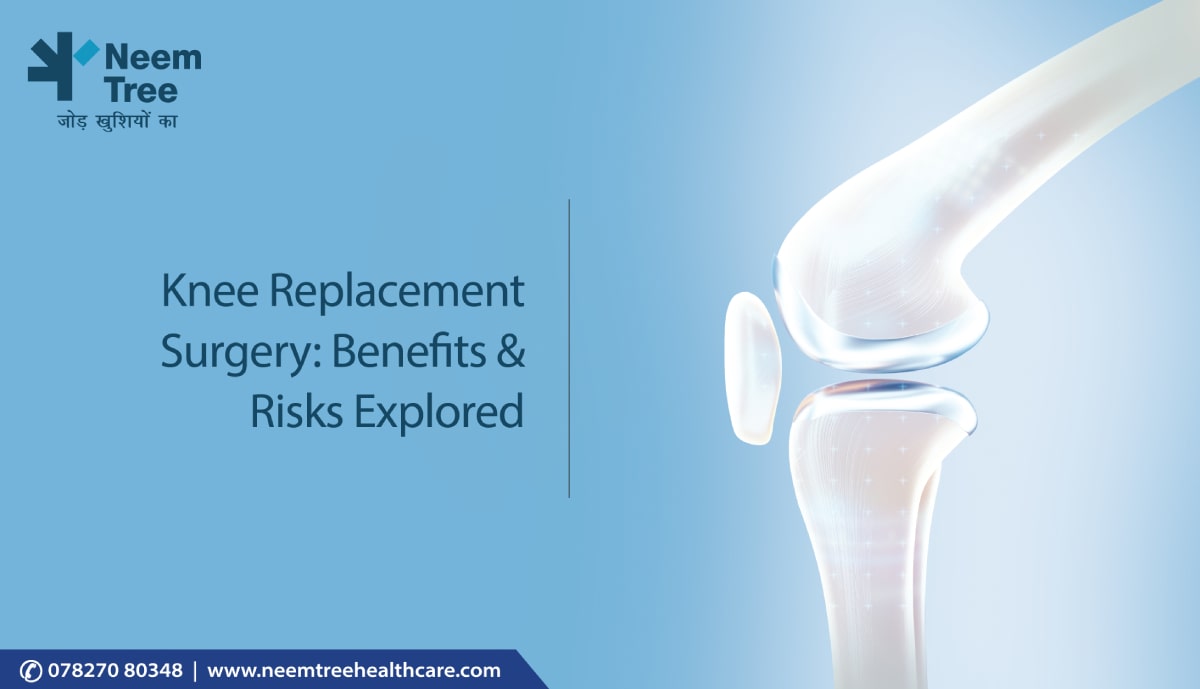
06 April 2024

Total Knee Replacement Surgery: A Comprehensive Guide to Candidacy, Procedure, and Recovery
Total Knee Replacement (TKR) surgery is a life-changing procedure that provides relief to individuals suffering from severe knee pain and mobility issues caused by conditions such as osteoarthritis, rheumatoid arthritis, or injury. Understanding the candidacy criteria, procedure details, and recovery process is essential for those considering TKR surgery or supporting loved ones through the journey. In this blog post, we'll delve into each aspect to provide a comprehensive overview.
Determining candidacy for TKR surgery involves a thorough evaluation by an orthopedic surgeon. The following factors are typically considered:
1. Severity of knee pain: You often experience persistent knee pain that interferes with daily activities, despite conservative treatments such as medication, physical therapy, and lifestyle modifications.
2. Functional limitations: You may have difficulty walking, climbing stairs, or performing routine tasks due to knee stiffness and reduced range of motion.
3. Radiographic findings: X-rays or other imaging studies reveal significant joint damage, including cartilage loss, bone spurs, and deformities.
4. Failed non-surgical treatments: You have exhausted non-surgical options without experiencing adequate pain relief or functional improvement.
TKR surgery is performed under general or regional anesthesia and typically involves the following steps:
1. Incision: The surgeon makes an incision over the knee to access the joint.
2. Bone preparation: The damaged cartilage and bone surfaces of the thigh bone (femur), shin bone (tibia), and kneecap (patella) are carefully removed or reshaped.
3. Implant placement: Metal components are attached to the prepared bone surfaces using bone cement or press-fit technique. A plastic spacer is inserted between the metal components to facilitate smooth movement.
4. Patellar resurfacing (optional): If necessary, the undersurface of the kneecap may be resurfaced with a plastic component to improve its function.
5. Closure: The incision is closed, and a sterile dressing is applied to the surgical site.
The recovery process following TKR surgery is a gradual but essential phase in achieving optimal outcomes. Key aspects of the recovery process include:
1. Hospital stay: Patients typically stay in the hospital for a few days following surgery, during which time pain management, wound care, and early mobilization are initiated.
2. Physical therapy: Rehabilitation begins soon after surgery to restore strength, flexibility, and function to the knee joint. Physical therapy exercises focus on improving range of motion, strengthening muscles, and enhancing balance and stability.
3. Pain management: Pain medication, both oral and/or intravenous, is prescribed to manage post-operative discomfort. As recovery progresses, pain levels typically decrease.
4. Assistive devices: Initially, patients may require assistive devices such as crutches, walkers, or a cane to aid in walking and prevent falls. As strength and stability improve, these devices are gradually phased out.
5. Follow-up care: Regular follow-up appointments with the surgeon are scheduled to monitor progress, address any concerns, and adjust the rehabilitation plan as needed.
Total Knee Replacement surgery offers relief and improved quality of life for individuals suffering from debilitating knee conditions. By understanding the candidacy criteria, procedure details, and recovery process, patients and their families can make informed decisions and better prepare for the journey ahead. With proper care, rehabilitation, and support, TKR surgery can provide lasting pain relief and restored mobility, allowing individuals to regain independence and enjoy an active lifestyle once again.

Know Your Doctor Extensive experience of more than 25 years in......read more